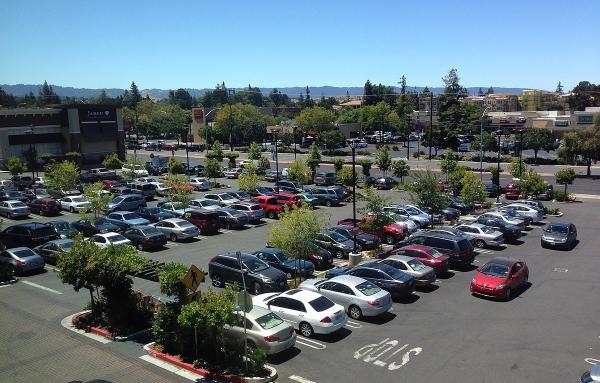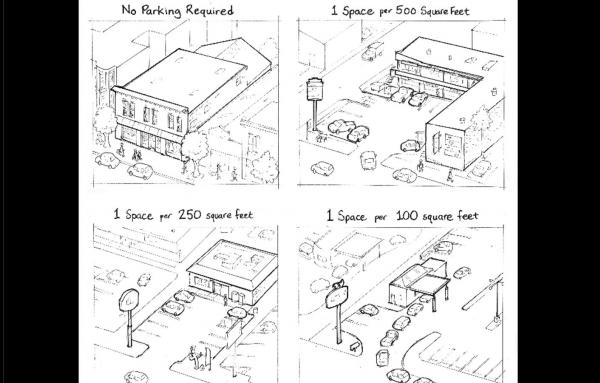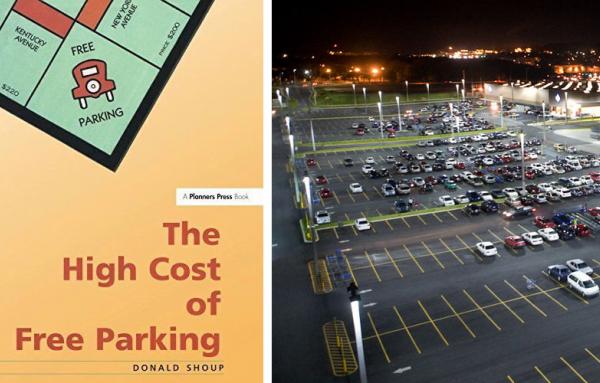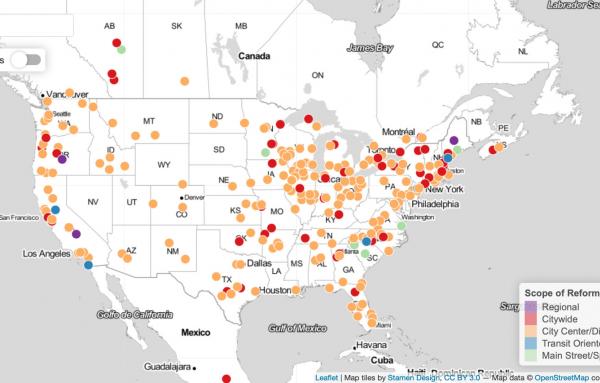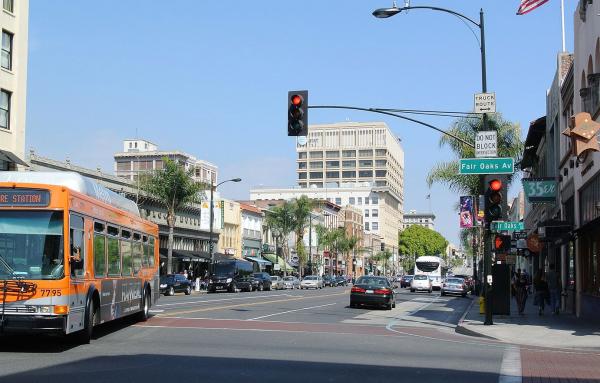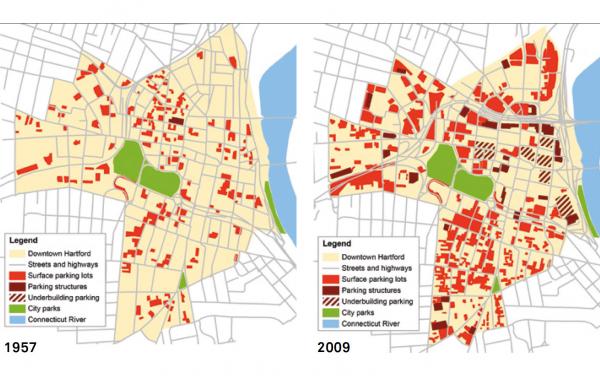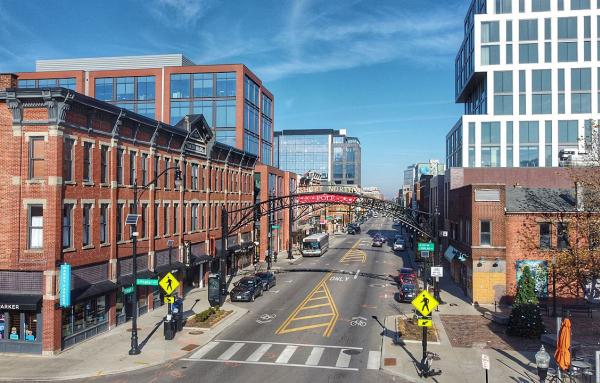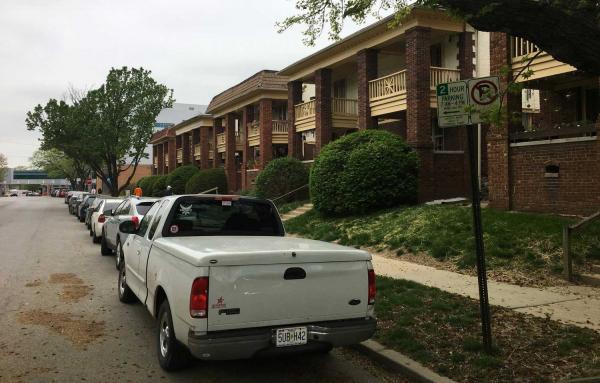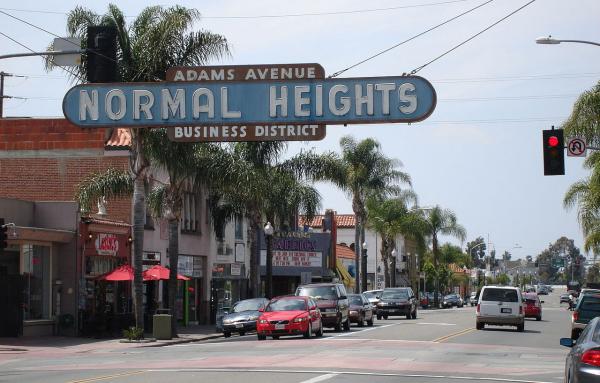Parking
Minimum parking requirements are a secret but significant source of carbon emissions from transportation.
Motivated by concerns over housing affordability and climate change, big cities and small towns are eliminating parking requirements. The reform has just begun—especially in the suburbs.
Now that parking mandates are falling at an accelerating clip, here's a look at the fountainhead of parking reform.
Parking reform is gaining substantial momentum even in recent months—a policy development that will impact missing middle housing production, reuse of old buildings, and vehicle miles traveled, experts say.
A growing number of cities and states are reforming their parking regulations, and Donald Shoup, this year’s winner of the Seaside Prize, deserves considerable credit.
The city's parking policy has taken many turns, and now small buildings and those with affordable housing are not required to build parking at all.
While some cities opt for a targeted approach to parking reform, Fayetteville, Arkansas, finds that a citywide policy change is transforming buildings that were long-vacant.
The capital city of Connecticut tore down many buildings to store cars, but city officials have realized the error and reversed course.
Minimum off-street parking requirements have created a host of problems, leading cities and states to rethink this policy. The wave of reform is just beginning, because the oversupply from a century of misguided parking policy is likely to persist.
Note: Public Square editor Robert Steuteville is on leave, and will return at the end of October.
The 2023 winner of the Seaside Prize will be UCLA Urban Planning Professor Donald Shoup, who has led an international movement against off-...
While off-street parking regulations are counter-productive, we still need to plan for parking. Here are some ideas on how to think about this issue.
More cities are adopting a simple code change that goes a long way to improve the urban environment.
